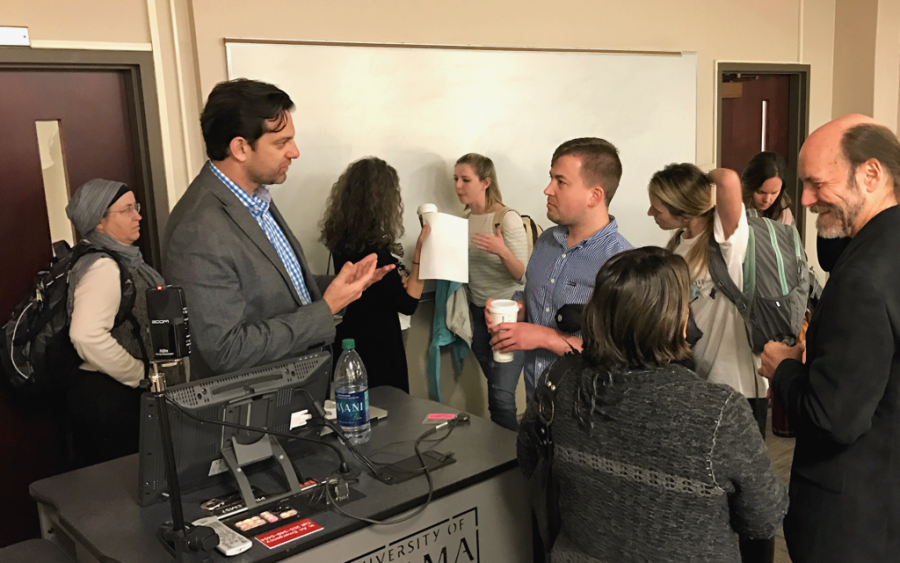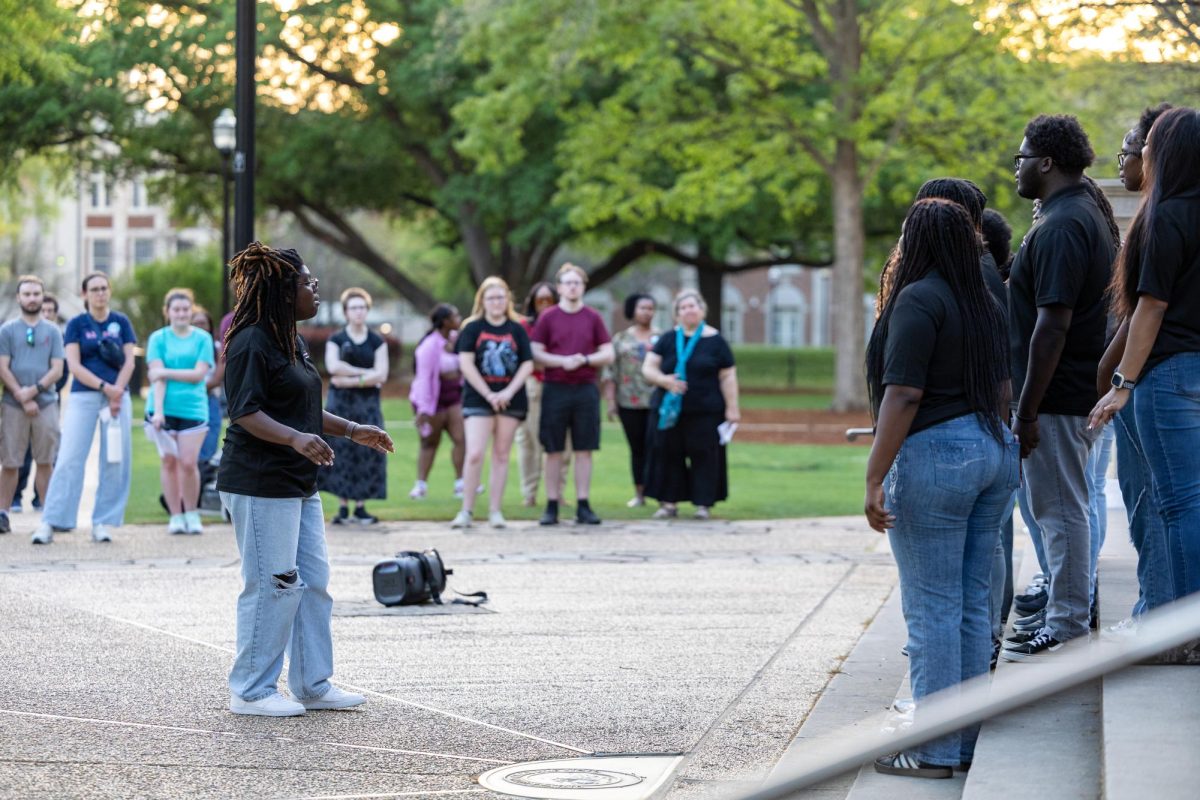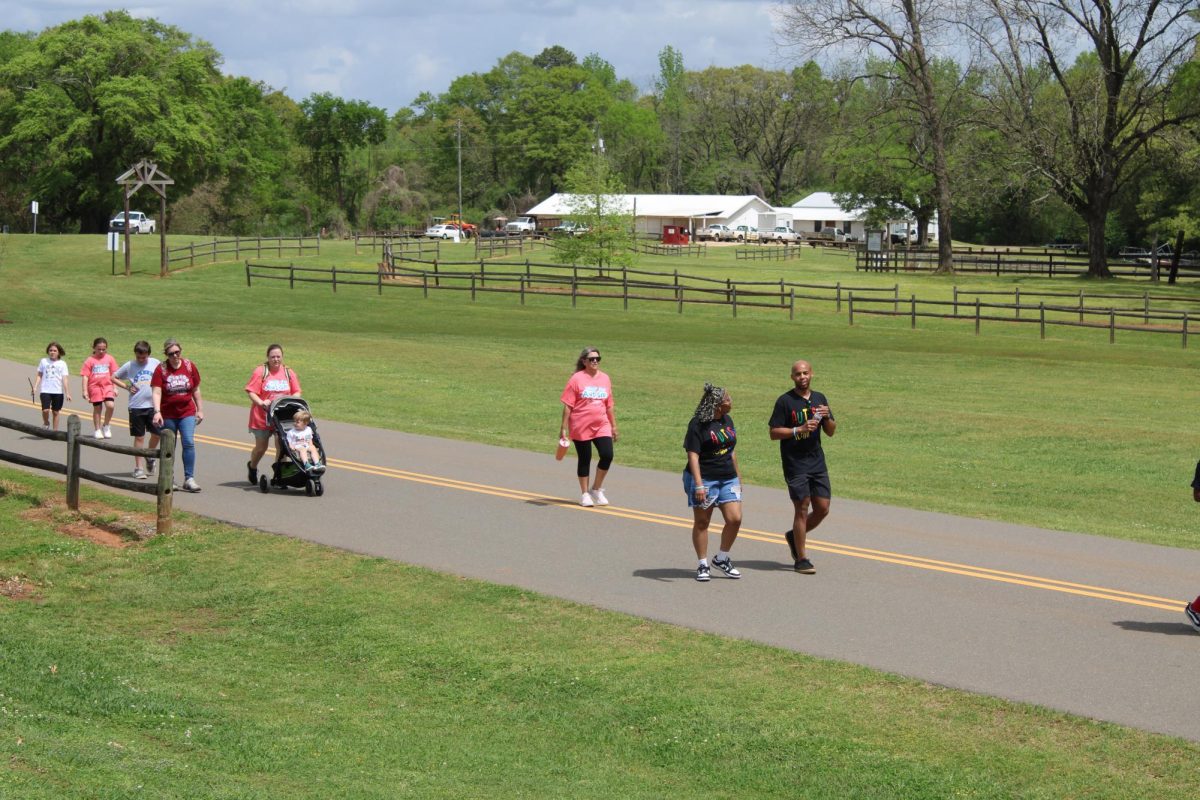In front of a packed crowd, Clarence Gravlee’s James R. Bindon Lecture discussed the connectivity of race relations and health issues in the Black community on Monday evening.
Studies focused on racism’s link to high blood pressure among African-Americans have influenced Gravlee travel the globe and dedicate thousands of work hours to investigate racially-charged inequalities in health and medicine for nearly two decades. While numerous studies point to genetics relating to race as the primary factor behind the disparity of hypertension rates in Blacks compared to Whites, Gravlee strongly disagrees and claims available evidence undermines the assumption that genetics have anything to do with White-Black disparity at all.
Many of the findings that Gravlee explored over the course of his career thus far were shared Monday evening with University of Alabama students on campus during his “Sick of Race” seminar held in ten Hoor Hall as a part of the James R. Bindon Lecture Series. The seminar, co-hosted by the Department of Anthropology, Department of Gender and Race Studies, College of Community Health Sciences and College of Arts & Sciences, was attended by an at-capacity crowd of intrigued students totaling roughly 40 as well as by over two dozen faculty members.
Gravlee, an associate professor at the University of Florida, addressed the issues of hypertension and premature mortality rates extensively, noting that hypertension is 50 percent more common among African-American individuals in comparison to Whites, with one in four Black adults suffering from high blood pressure in the United States.
“The interaction between class and color are closely related to the results of blood pressure,” Gravlee explained. He also noted the definition of ‘race’ can typically prove itself to be a point of confusion when this topic arises, making a point to define the expression as a “Social Environment” rather than a biological trait in terms of its relationship to disadvantages in health.
At the heart of his seminar, Gravlee pushed his discoveries regarding social stresses, such as discrimination based on race, as the key components that contribute to racial disparities in hypertension rates. During his travels to Puerto Rico for this study, Gravlee found that areas more prone to producing African-Americans with high blood pressure were often heavily White-populated, as this led to an environment of hostility towards some Black citizens. In largely Black-populated areas of the land, high blood pressure was far less common.
Gravlee discovered that this may be due to the fact that the people in Black-dominated areas themselves were hearing about fewer situations of racially-charged tension. Vicarious racism, in his findings, was a far better indicator of high blood pressure than direct racist encounters.
Jade Hill, a freshman majoring in International Relations, commented that as an African-American she was affected greatly by many of the scenarios Gravlee described.
“High blood pressure runs in my family and I’ve had experiences with racism. However, I’ve never thought about the two being related,” Hill said. “[The seminar] was an interesting outlook on social issues in America.”
These comments of Hill’s echoed the hopes of Jason DeCaro, organizer of the Bindon Lecture Series and Associate Professor of Anthropology at The University of Alabama, for students attending the seminar.
“What we really hope is that by bringing Dr. Gravlee here, we can provide for students an opportunity to hear a fresh perspective that they may [otherwise] not have on something that we are all on some level familiar with,” DeCaro said. “It is timely in that we are, as Dr. Gravlee pointed out, in the midst of some very difficult but extremely important society-wide conversations.”
Whether it be violence, job discrimination or insensitive racially-motivated comments, the experience of racism by Black people can be, as Gravlee argues, directly traced to a discrepancy in rates of hypertension.
“Color and socioeconomic status interact with blood pressure, ancestry does not,” Gravlee said.
The James R. Bindon Biocultural Anthropology and Health Lecture Series is a recently-endowed set of seminars organized by the Department of Anthropology featuring guest scholars who can “speak to interdisciplinary questions that make biocultural anthropology such a vibrant area for research and study.” A list of upcoming events in the series can be found on The University of Alabama’s Department of Anthropology official website.









